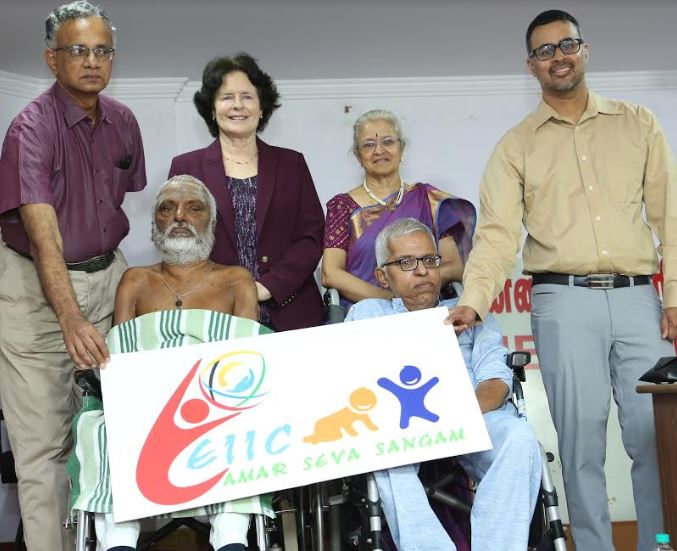Chennai, Tamil Nadu, India
The school enrolment rate of children with special needs improved from 69% to 85% when they received early intervention therapy, finds a study by Amar Seva Sangam, Ayikudi (ASSA), a premier non-profit organization in the field of disability management.
(L-R) Sitting:
(L-R) Standing:
The study was conducted in association with the University of Toronto and McGill University, Canada on the outcomes of ASSA’s Village-based Early Intervention & Rehabilitation Programme that covered 1152 children with special needs. The programme was funded and supported by Grand Challenges Canada, Handi-Care Intl., Azim Premji Philanthropic Initiative and the Harvard Centre for the Developing Child. The program has been awarded the prestigious MIT Solver Award, Vodafone Mobile for Goods Award, World Cerebral Palsy Day Major Award in Medical/Therapeutics and the Zero Project Inclusive Education Award to be presented at the United Nations in Vienna in Feb 2020. The programme uses a digital application to connect community rehabilitation workers with rehabilitation specialists in order to provide early intervention therapy to children with delayed development. This has improved their development and increased their participation and integration in schools and society. The programme began in Oct. 2014 and has benefited 1152 children with special needs in the district of Tirunelveli, Tamil Nadu and will continue to enroll new children and expand to new districts in Tamil Nadu. The programme trained 2771 Anganwadi workers, village health nurses and community rehabilitation workers in screening for delayed development and screened 52,036 children under the age of 6 in this district. They found a 2.1% prevalence rate of developmental disabilities. In addition, more than 35,000 people in the surrounding community showed improved knowledge about child development, early intervention therapy and reduced stigma as a result of awareness camps conducted by ASSA. The program showed improved engagement over time with rates of therapy attendance by children improving from 60% in 2017 to 95% in 2019. ASSA’s study found that the severity of disability and the lack of early intervention were the two primary reasons that prevent the children with special needs from attending schools. The lowest enrolment was seen with children with cerebral palsy (CP), particularly those with more motor severity and cognitive impairment. Children with higher early intervention program attendance levels had higher rates of achieving school enrolment.
|
(Disclaimer: The above press release comes to you under an arrangement with Newsvoir India and this publication takes no editorial responsibility for the same.)


